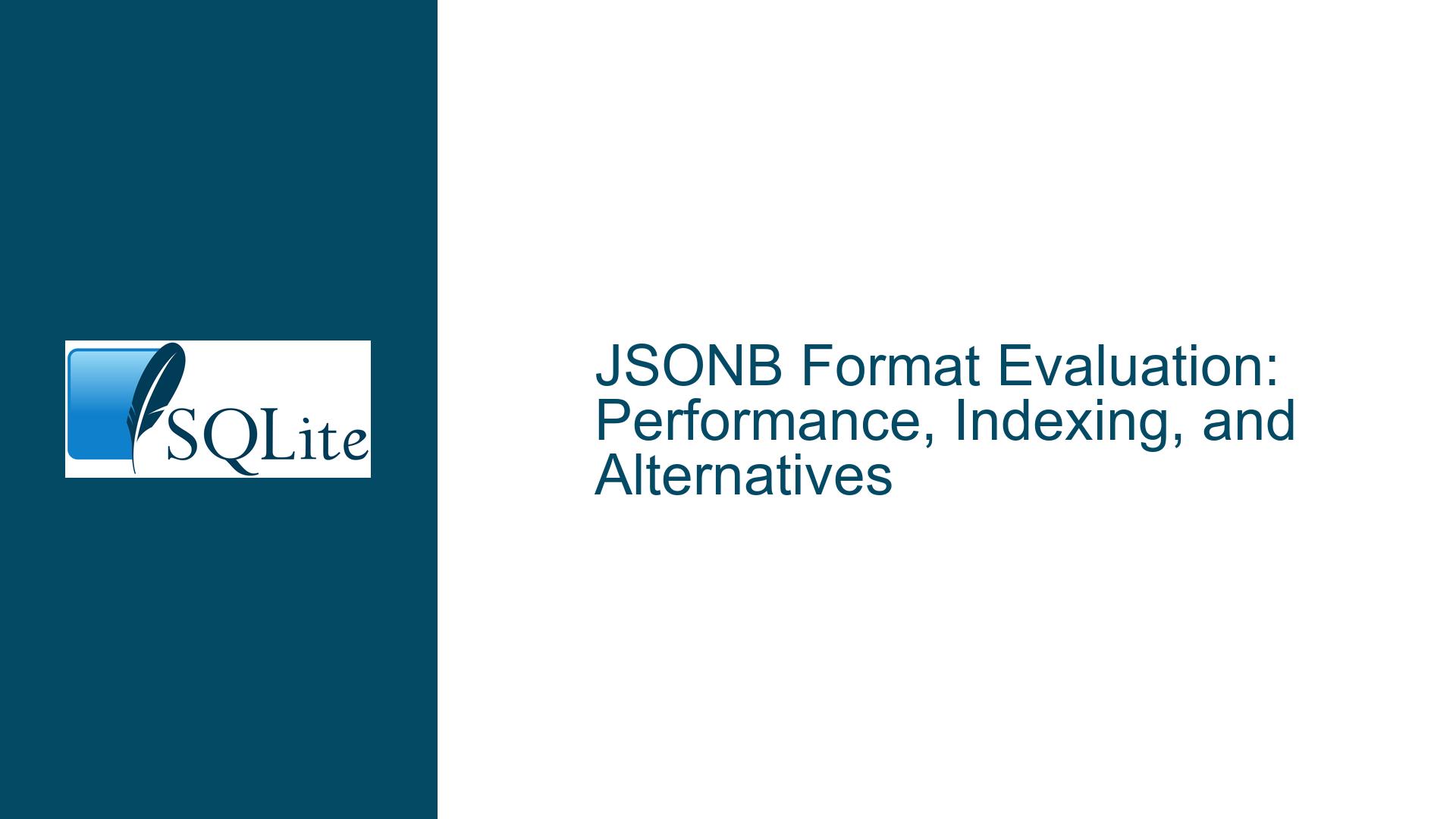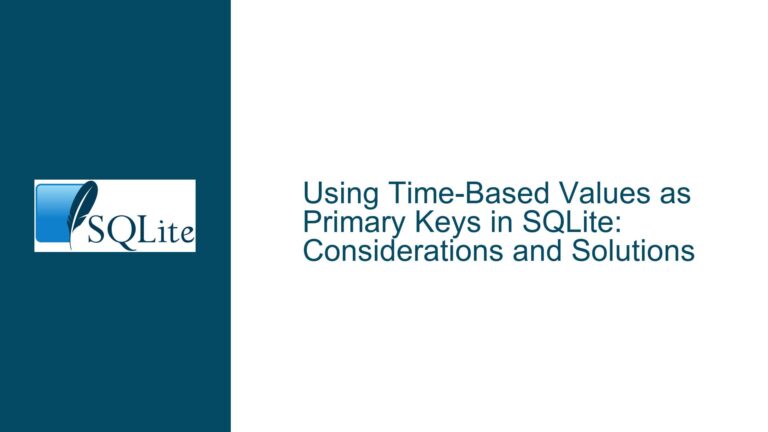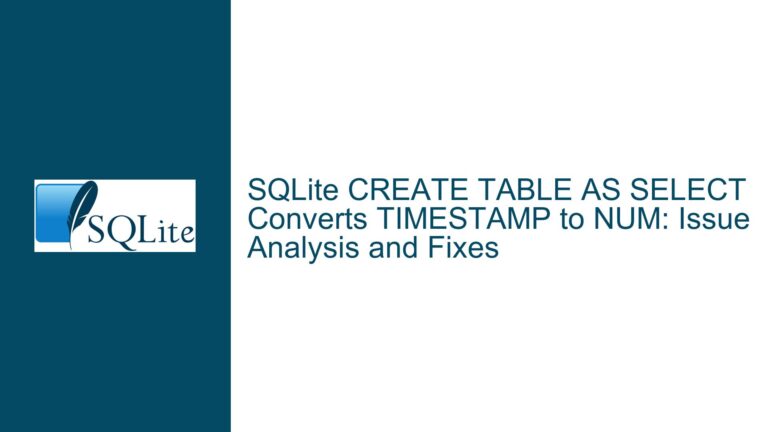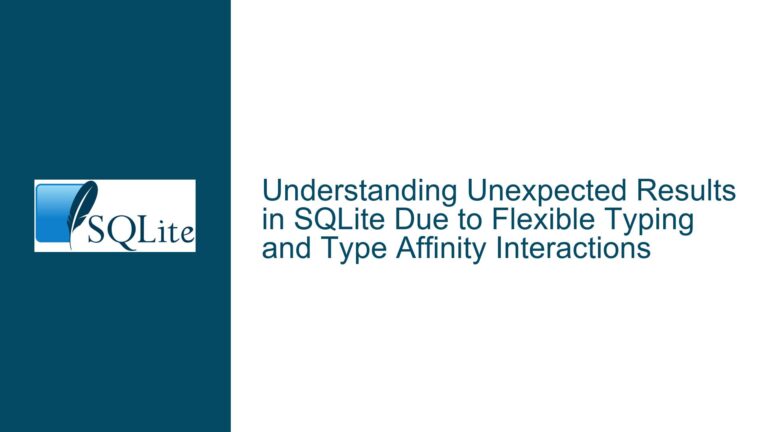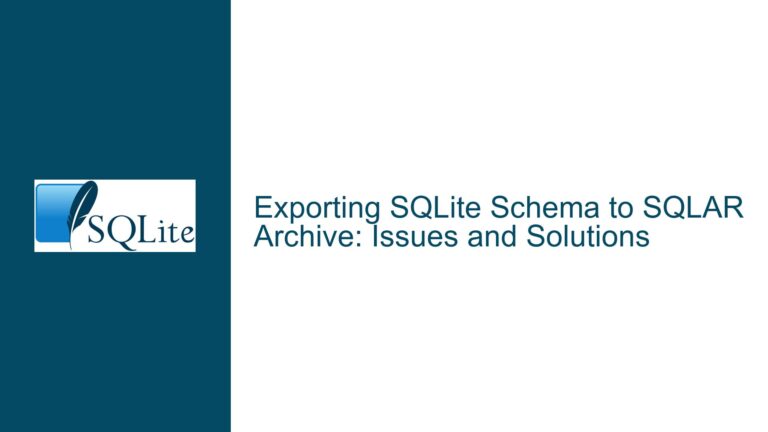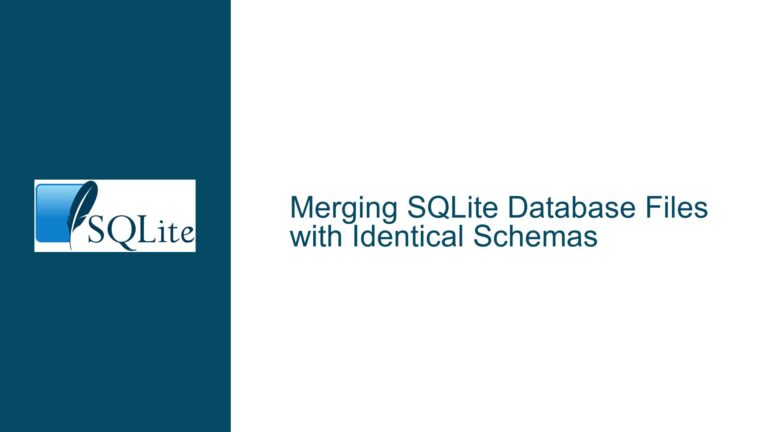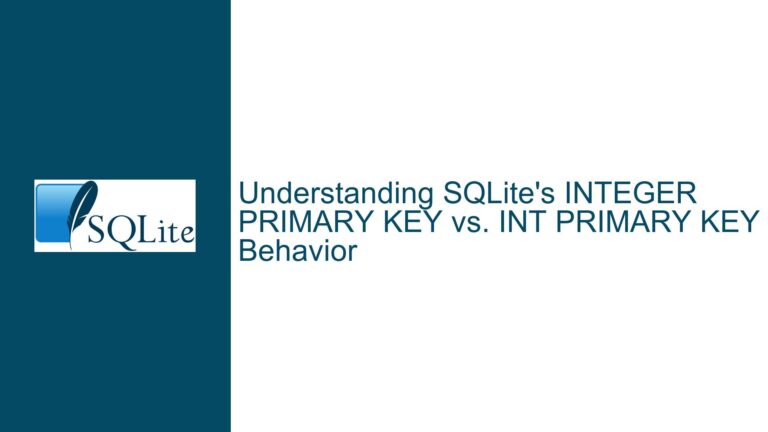JSONB Format Evaluation: Performance, Indexing, and Alternatives
JSONB Format Overview: Advantages, Implementation, and Testing
The JSONB format, proposed for SQLite 3.44.0, introduces a binary storage format for JSON data, aiming to improve both storage efficiency and query performance. JSONB is designed to be more compact than traditional text-based JSON, reducing disk space usage by approximately 5-10%. Additionally, it significantly enhances the speed of operations such as json_extract() and the -> and ->> operators, which are more than twice as fast when operating on JSONB data compared to text JSON.
The JSONB format is currently in the pre-release stage, and developers are encouraged to test it in their applications to evaluate its performance and provide feedback. Key areas for feedback include size and performance improvements, interface enhancements, and documentation clarity. It is important to note that the JSONB format is still under active development, and its on-disk representation and interfaces are subject to change. Therefore, it is not recommended for use in production environments or for long-term data storage at this stage.
One of the primary motivations behind JSONB is to provide a more efficient way to store and query JSON data within SQLite. Unlike text JSON, which requires parsing the entire document to access specific elements, JSONB allows for faster navigation and extraction of data due to its binary structure. This makes it particularly advantageous for applications that frequently query nested or complex JSON structures.
However, the introduction of JSONB raises several questions and concerns, particularly regarding its compatibility with existing JSON standards, its indexing capabilities, and its performance compared to other binary JSON formats such as MsgPack and CBOR. These issues are explored in detail below.
Concerns About JSONB: Indexing, Element Types, and Format Stability
One of the key concerns raised in the discussion is the impact of JSONB on indexing. While JSONB is expected to improve query performance, it is unclear whether it will also enhance indexing on JSON expressions. Indexing is critical for optimizing queries that involve filtering or sorting based on JSON data, and any improvements in this area could significantly enhance the overall performance of applications that rely heavily on JSON.
Another area of concern is the handling of specific element types within JSONB. For example, element types 4 and 6, which represent number formats not covered by the JSON RFC, have raised questions about their intended use. It has been suggested that these types might be intended for JSON5 literals, but this has not been explicitly clarified. Additionally, the representation of string literals in JSONB, particularly those with no escapes, could benefit from further specification, especially regarding the handling of SQL special characters.
The stability of the JSONB format is also a topic of discussion. While the format is expected to be stable once released, there are concerns about its long-term viability and compatibility with future versions of SQLite. Some have suggested adding a version byte at the start of the JSONB encoding to allow for future changes, similar to the approach used in PostgreSQL’s JSONB implementation. This would provide a safeguard against potential incompatibilities and ensure that the format remains extensible.
Furthermore, the discussion highlights the need for clarity regarding the lossless nature of JSONB. While the format is designed to maintain syntactic fidelity, there are questions about its handling of insignificant whitespace, key order, and duplicate keys. These details are crucial for ensuring that JSONB can be used in applications where exact round-tripping of JSON data is required.
Troubleshooting JSONB: Performance Optimization, Format Comparisons, and Best Practices
To address the concerns and optimize the use of JSONB, several troubleshooting steps and solutions can be implemented. First, developers should thoroughly test the pre-release version of JSONB in their applications to evaluate its performance and identify any potential issues. This includes measuring the impact of JSONB on storage size, query speed, and indexing performance. Any regressions or unexpected behavior should be reported to the SQLite development team to help refine the format before its official release.
When comparing JSONB to other binary JSON formats such as MsgPack and CBOR, it is important to consider the specific use cases and requirements of the application. While JSONB offers advantages in terms of speed and storage efficiency, it may not be the best choice for all scenarios. For example, CBOR, as an IETF standard, provides a well-established and extensible format for binary JSON representation. However, JSONB’s ability to skip over complex elements without recursive parsing gives it a distinct advantage in terms of query performance.
To ensure compatibility and future-proofing, developers should advocate for the inclusion of a version byte in the JSONB format. This would allow for future enhancements and modifications without breaking existing implementations. Additionally, the documentation for JSONB should be updated to provide clear and detailed information about its handling of element types, string literals, and round-tripping characteristics. This will help developers make informed decisions about when and how to use JSONB in their applications.
For applications that require frequent access to nested JSON data, JSONB’s ability to skip over complex branches can provide significant performance benefits. However, developers should also consider the trade-offs involved in using JSONB, such as the potential for increased complexity in data migration and the need for careful handling of versioning and compatibility issues.
In conclusion, while JSONB offers promising improvements in storage efficiency and query performance, its successful adoption will depend on thorough testing, clear documentation, and careful consideration of its strengths and limitations compared to other binary JSON formats. By addressing these issues, developers can ensure that JSONB becomes a valuable addition to the SQLite ecosystem.
